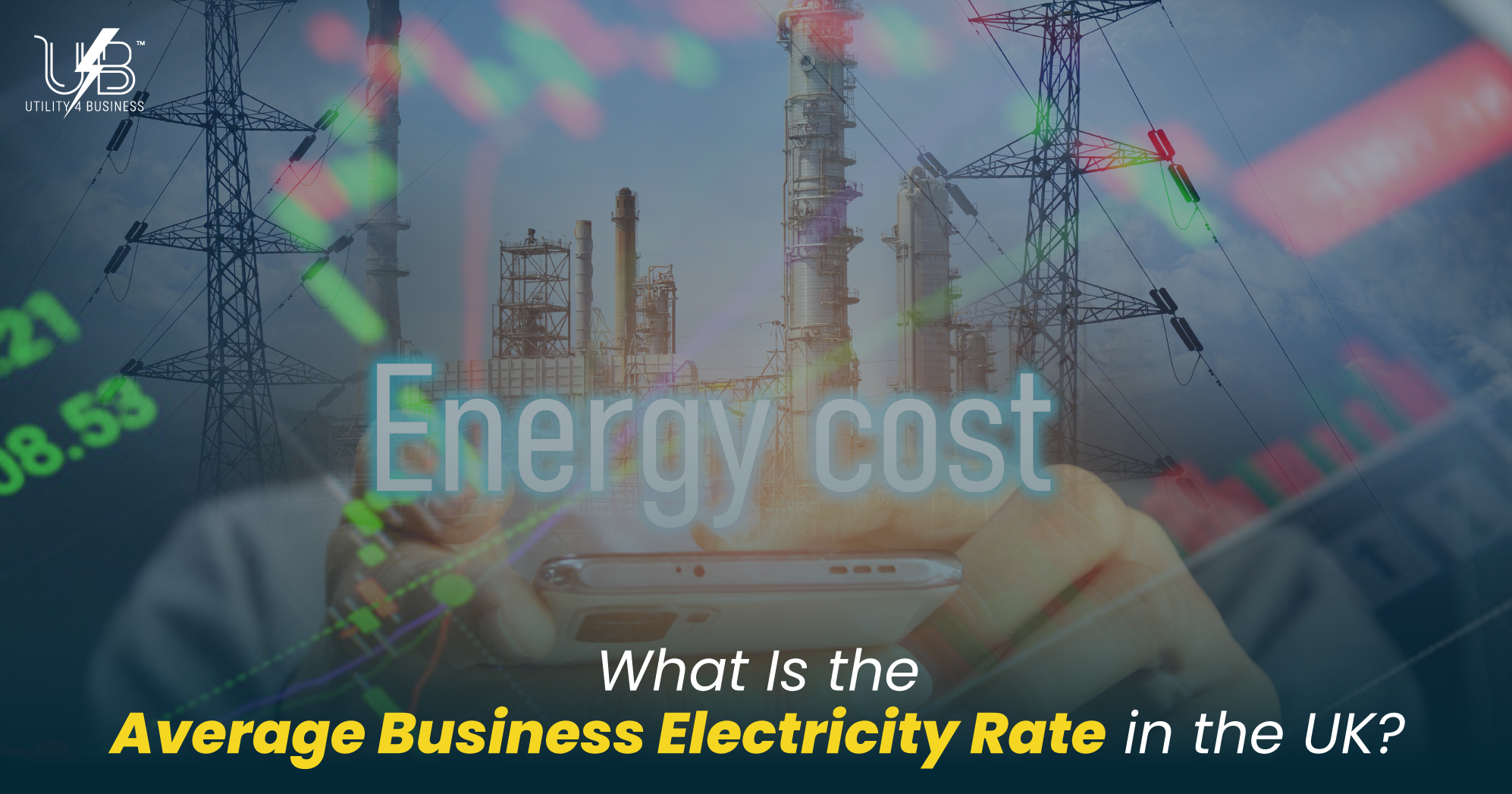Cheapest Business Electricity in Wales
Wales Business Electricity Guide

Wales has a diverse business landscape, manufacturing in Wrexham and Deeside, hospitality along the coast, logistics around Cardiff and Newport, and a thriving base of micro and small enterprises across towns and rural areas. All of them need a clear, practical way to reduce their energy spend. This guide explains how Welsh firms can secure the cheapest business electricity in Wales without cutting corners on reliability or service. It sets out how prices work, what to check in contracts, when to lock in rates, and how to use business electricity comparison tools properly.
As Utility4Business, we help companies choose the right tariff, avoid hidden fees, and keep bills under control. The steps below are specific to Wales and show how to move from rough estimates to informed decisions that hold up through daily operations and seasonal shifts.
How Business Electricity Works In Wales
Distribution Regions And Why They Matter
Wales spans more than one electricity distribution region. That means standing charges and certain network-driven costs can differ between North Wales and South Wales. Even small differences in those fixed elements can outweigh a headline unit rate, especially for low or variable consumption. When you collect quotes, ask for site-specific pricing rather than a blended average. This protects you from paying more at one location to “subsidise” another.
Regulation, Taxes, And Levies
Ofgem regulates the market across Great Britain and sets the rules around contract clarity, billing standards, and complaint routes. On bills, most businesses pay 20% VAT on electricity, and the Climate Change Levy (CCL) applies to most non-domestic usage. These elements are not optional extras; they are part of your true cost and must be included when you judge whether a deal is actually the cheapest.
Fixed Versus Pass-Through Costs
Your bill combines commodity (the electricity itself) and non-commodity elements (networks and policy). Contracts present those in different ways:
- Fixed: Non-commodity items are bundled into the unit rate or standing charge. Bills are predictable.
- Pass-Through: Some items move during your term. This can be cheaper in the right hands but needs active management and clear monthly reporting.
What “Cheapest” Really Means For A Welsh Business
Many buyers focus on pence per kilowatt-hour and ignore the rest. In practice, the cheapest business electricity Wales option is the contract that produces the lowest total cost over your actual usage and your risk tolerance. Consider each of the following:
- Standing Charge: A slightly higher standing charge can wipe out savings from a lower unit rate if you use modest energy or close down at weekends.
- Time of Use: If you run refrigeration or data workloads at night, two-rate or three-rate contracts can help. If you trade daytime only (for example, a café in Swansea), a simple flat rate may win.
- Contract Length: One-year terms bring flexibility. Two- and three-year terms can protect you from market spikes and stabilise budgets. Choose based on your lease length, expansion plans, and ability to manage price swings.
- Payment and Credit: Direct debit discounts and credit assessments affect the final price. Be ready with recent accounts and proof of address to avoid delays or surcharges.
- Metering and Capacity: For half-hourly (HH) sites, make sure the agreed capacity matches your peak demand. Paying for capacity you never use inflates final costs.
- Extras and Fees: A low unit rate can be offset by broker fees, metering charges, or expensive pass-through items. Ask for a line-by-line breakdown before you decide.
A Wales-Focused Buying Checklist
Follow this sequence to structure a robust business electricity comparison:
1) Gather Twelve Months Of Data
Export smart-meter or HH data if available. If not, collect bills covering a full year. Note kWh, standing charges, unit rates, VAT, CCL, and any site-specific fees. Include opening and closing reads where possible. This becomes your baseline for like-for-like comparisons.
2) Map Your Load Shape
List working hours, shift patterns, seasonal peaks, and any high-draw equipment (ovens, chillers, compressors, servers, EV chargers). Tourism sites along the Welsh coast and rural producers often have sharp seasonal patterns that deserve a tariff with the right day/night balance.
3) Validate Metering And Capacity
Confirm whether you are HH or non-HH and whether any mandatory metering upgrades are due. For HH sites, compare peak demand to agreed capacity. If there is a large gap, reduce capacity with your network operator (subject to rules and lead times) to trim fixed costs.
4) Decide On Risk And Term
If cash flow is tight or you want certainty, a fixed all-inclusive offer is usually safer. If you can watch the market and accept variability, a pass-through or flexible structure may work. Choose a contract length that matches your premises plan and your appetite for renewal admin.
5) Request Like-For-Like Quotes
Insist on the same start date, term length, payment method, and metering assumptions across all quotes. Do not compare a fixed all-in quote with a pass-through quote. Ask for the non-commodity components and any broker fees to be shown clearly.
6) Compare By Site
If you operate in both North Wales and South Wales, price each site separately. Local network charges and loss factors can shift the winner. Avoid a blended price unless you can see the site-level pieces that make it up.
7) Stress-Test The Final Two
Model each finalist at +10% and −10% usage. The genuinely cheapest deal is the one that stays competitive as operations fluctuate, not only at your last year’s exact kWh.
Utility4Business runs this whole process and presents results in a simple, auditable format. You can still choose the final term length and risk profile, but you do so with full clarity.
How To Use Comparison Tools The Right Way
Online tools are powerful when you feed them quality data and ask the right questions. Use these habits to get better results from business electricity comparison tools:
- Enter true annual kWh and your latest bill details.
- Ask for the standing charge, unit rate(s), expected non-commodity components, VAT, and CCL to be shown or explained.
- Check terms for start date, end date, early termination rules, and renewal windows.
- Try multiple query variants to widen your view: business electricity comparison, compare business electricity, business electricity compare, and SME electricity comparison.
- Save screenshots or PDFs of each quote, including fee disclosures, so you can verify the numbers later.
North Wales Versus South Wales: Practical Differences
- Network Context: North Wales and South Wales sit in different distribution areas. Standing charges and certain pass-through costs can therefore diverge. Price each site on its own facts.
- Rural Upgrades: Farms, caravan parks, and remote workshops often face longer lead times for capacity changes or new connections. Plan upgrades early to avoid temporary deemed rates or penalty fees.
- Urban Availability: Cardiff, Swansea, Newport, and Wrexham business parks tend to have better headroom for new loads, which can mean simpler capacity rightsizing and shorter timelines.
When Utility4Business runs your tender, we prepare a site-by-site table so you can see where each location wins and why.
Contracts And Timing In 2025
Prices move with wholesale markets, while policy and network elements adjust on an annual cycle. The smart approach is to prepare early and keep options open:
- Start 120 Days Out: Gather data, remove anomalies, and request first-round quotes.
- Watch For Dips: If the market softens, ask for refreshes on your shortlisted options.
- Budget For The Full Bill: Include VAT and CCL in your forecasts, not just the unit rate.
- Match Term To Plan: Multi-year deals can be attractive if you expect steady operations at the same premises; shorter terms suit businesses planning a move or an equipment upgrade.
Compliance, Billing, And Protection
Welsh SMEs should build simple, repeatable controls around energy:
- First-Bill Audit: After any switch, check the opening read, standing charge, unit rates, VAT, and CCL. Correcting errors early stops compound problems.
- Change Of Tenancy: When moving premises, contact the incumbent supplier on day one with opening reads and company details to avoid expensive deemed rates.
- Record Keeping: Keep copies of quotes, fee disclosures, and contract emails. Good records make disputes faster and cheaper to resolve.
Practical Welsh Scenarios And What Usually Wins
Café In Swansea With a Day-Heavy Load
This site trades 7 am–5 pm with coffee machines, ovens, and refrigeration. A fixed one- or two-year contract with a competitive standing charge and a strong day rate tends to beat complex options. LED lighting and tight shutdown routines deliver quick savings without capital expense.
Holiday Park Near Aberystwyth With Seasonal Peaks
The load rises sharply in summer. A two-rate tariff with lower night pricing helps run laundry, pool pumps, and water heating at off-peak times. Smart timers make it easy to automate. Capacity can be reduced for the winter months if the contract and network rules allow.
Food Processor In Wrexham With HH Metering
Here, half-hourly data drives decisions. It is worth comparing a well-specified fixed offer against a pass-through option. If the team can manage active purchasing and reporting, pass-through may pay off. Otherwise, a 24–36-month fixed contract gives certainty for supply agreements with supermarkets and wholesalers.
Utility4Business builds these comparisons from your real profiles and presents a sensitivity view so you can see which option remains cheapest if production shifts.
Efficiency Actions That Keep Bills Down In Wales
Quick Wins (0–3 Months)
- Align HVAC and lighting schedules with opening hours.
- Add strip curtains for loading bay doors to reduce heat loss.
- Service refrigeration and set defrost cycles at night where tariffs allow.
- Train staff on shutdown routines with a simple checklist.
Targeted Upgrades (3–12 Months)
- Replace high-use fittings with LEDs and occupancy sensors.
- Fit variable speed drives on pumps and fans.
- Add sub-metering to kitchens, cold stores, or EV charging bays so you can see where to act next.
- Review the agreed capacity after any process change.
Strategic Steps (12+ Months)
- Solar PV: Many Welsh roofs are suitable. Match the array size to daytime loads to maximise self-consumption.
- Heat Pumps: For offices, hospitality, and some light industrial settings, switching from old electric heaters to efficient heat pumps can cut kWh.
- Battery Storage: If your contract exposes you to time-of-use charges, storage can reduce peak imports and support EV charging during cheaper periods.
Utility4Business can align contract choice with these measures so the savings compound. Lowering consumption and choosing the right tariff produces the real “cheapest” outcome over the year.
Plain-English Terms You Will See In Quotes
- Standing Charge: A daily fixed fee for being connected to the network.
- Unit Rate: Price per kWh consumed.
- Fixed Contract: Prices are set for the term.
- Pass-Through: Some costs vary during the term and flow through to bills.
- Half-Hourly (HH) Meter: Records usage every 30 minutes; common in larger sites.
- Agreed Capacity: The maximum demand you pay to have available.
- Climate Change Levy (CCL): A government levy on business energy use.
- Deemed Rates: Expensive default pricing if you move in without a contract.
Why Choose Utility4Business
- Local Fit, Practical Results: We price each Welsh site on its own facts and remove guesswork from multi-site decisions.
- Clear, Comparable Quotes: We insist on like-for-like terms, visible non-commodity components, and clear fee disclosure.
- End-To-End Support: From data collection and tendering to first-bill checks and renewal timing.
- Efficiency Layer Included: We help you link contract structure with usage reduction so savings endure.
- Proactive Renewals: We prepare early, watch the market, and keep options open until you are ready to sign.
Our goal is simple: deliver the cheapest business electricity in Wales that stands up in day-to-day operations, not just on paper.
A Simple Action Plan
Week 1
- Collect 12 months of bills and any smart-meter/HH data.
- Note planned changes: new equipment, extended hours, EV chargers.
Week 2
- Ask Utility4Business to run a site-by-site business electricity comparison using your real data.
- Request fixed all-in and pass-through options on the same assumptions.
- Ensure standing charges, unit rates, VAT, CCL, and fees are visible.
Week 3
- Shortlist two finalists and stress-test at ±10% usage.
- Check contractual terms, renewal windows, and any upgrade requirements.
Week 4
- Select the winner and sign.
- Schedule a first-bill audit after go-live.
- Launch two quick efficiency actions and track results monthly.
Conclusion
Winning the cheapest business electricity in Wales is not about chasing the lowest headline p/kWh. It is about understanding how Welsh distribution regions, standing charges, non-commodity costs, and usage patterns combine to create your true annual spend. When you gather solid data, insist on like-for-like quotes, and align contract structure with your operations, the cheapest option becomes clear and stays resilient when business changes.
Utility4Business can run this process with you. We turn bills and meter data into a clear plan, expose hidden costs, and negotiate fair, transparent offers. Add a few practical efficiency steps, and your business will cut spend, reduce risk, and support growth across Cardiff and Newport, through Wrexham and Deeside, and in the rural and coastal communities that keep Wales moving.
Find This Article Helpful? Share It Now!
At Utility4Business, we offer top-notch customer support and business utility solutions for businesses across the UK. Consider sharing this article and helping others discover how our expertise can add value to their business success.

Read Our Latest Posts
Explore our latest blog posts and learn how Utility4Business can support your business growth with tailored utility solutions and services. Stay ahead of the curve with the latest information from industry experts and take advantage of our user-friendly comparison services to find the best business deals.


Get Connected
At Utility4Business, our team of experts can help you figure out the highest-value business utility deals that will help your business grow over time.

